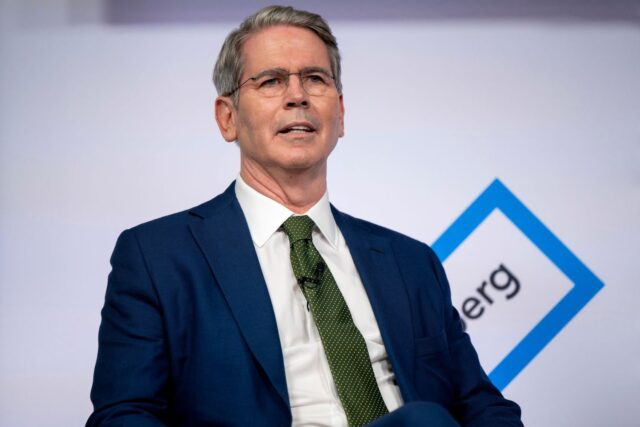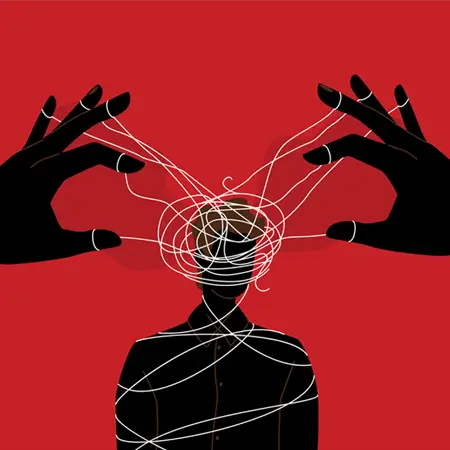It started with a shrug.
Not a bang, not a riot. Just millions of people gaslit into submission while institutions cracked beneath the weight of denial. One moment you’re watching the news; the next, you’re questioning your sanity. Welcome to the world’s longest toxic relationship—America, circa right now—where the government’s got its hand on your shoulder and a knife in your back, and still has the audacity to ask, “Why are you flinching?”1
What is gaslighting?
Let’s talk about gaslighting. The word gets thrown around like confetti, but the experience? It’s more like quicksand for the psyche. At its core, gaslighting is psychological warfare2. It’s someone making you question your own memory, your judgment, your reality. Now take that, pump it full of Red Bull and wrap it in a flag—and you’ve got gaslighting at a national scale.
Imagine you go through something traumatic. Something real. Something painful. Maybe you get racially profiled3. Maybe you survive a school shooting4. Maybe your rights get trampled on by someone with a flag pin and a smug smile. And then people around you, maybe even in power, tell you it wasn’t that bad. Or that it didn’t happen like that. Or that you’re being dramatic. Or that you’re just “making it political.” That’s gaslighting on a national scale. It’s like America has become the world’s worst boyfriend. “I didn’t cheat, you’re just paranoid.” Except instead of cheating, it’s oppression. Or violence. Or laws that make you feel like you’re shrinking inside your own country.
For people with trauma, gaslighting is basically the worst. Your brain already feels like it’s been mugged in a dark alley. PTSD is your body’s way of saying, “Hey, that was dangerous, let’s never forget it ever again”5. You’re on edge. You’re hyper-aware. Your body is like a smoke alarm that never shuts up. And then someone comes along and says, “Are you sure it was that bad?” or “You seem a little sensitive.” And now your brain’s not just freaking out—it’s also trying to convince itself it has no right to be freaking out. So now you’ve got trauma and self-doubt.
And then there’s fatigue. Sweet, sweet emotional burnout. Gaslighting fuels that, too. Imagine trying to explain your pain over and over again to people who refuse to believe it’s real. Imagine being told that the thing hurting you is all in your head, while that same thing keeps happening. Eventually, you’re just done. You’re tired. Not like “I stayed up too late watching Netflix” tired, but “I’ve been carrying this invisible backpack full of bricks and smiling through it” tired. That’s the kind of fatigue we’re talking about6.

And now—let’s sprinkle in a little bureaucratic gaslighting for flavor. You ever hear the phrase “waste, fraud, and abuse”? Yeah. That’s the bedtime story politicians tell the public when they want to slash funding for the exact programs that keep people barely surviving7. Food stamps? Waste. Medicaid? Abuse. Free school lunch? Fraud, obviously, because apparently some seven-year-old somewhere might be eating a sandwich their family didn’t “earn.” It’s this genius little spell they cast to make you think that cutting lifelines is actually just good fiscal hygiene. Like gutting mental health services is the same as canceling a gym membership you never used.
But what they don’t say out loud is that these systems—those so-called “wasteful” programs—are the only thing keeping huge swaths of the population functional. Take them away, and surprise: people don’t get less dependent, they get desperate. They get sick. They get evicted. They self-medicate. They spiral8. And then what? Then the same people who defunded the support systems point at the fallout and go, “See? These people are broken.” It’s a self-fulfilling prophecy wrapped in smugness.
So… what’s in it for us?
That’s the question, right? The one they never answer directly. What’s in it for us?
We’re told these guttings and rewrites and “bold efficiencies” are necessary sacrifices. That slashing social programs is somehow patriotic. That turning entire federal agencies into rubble is just good business. We’re promised a leaner government, a freer market, a stronger nation.
But what do we actually get?
We get longer waits at the Social Security office, if it’s still there. Empty desks at the FAA. Hurricanes with no advance warning because NOAA’s servers are down9. We get public schools that can’t keep the lights on while billionaires cosplay as budget hawks. We get told it’s all part of a noble mission to root out “waste”—but the waste always seems to be us.
We don’t get dignity. We don’t get protection. We don’t get peace of mind.
Because what’s in it for us isn’t relief—it’s resentment. It’s being gaslit into thinking our suffering is a moral failure. It’s watching our lives get sliced for someone else’s spreadsheet. It’s being told that the country’s broke while corporations get tax refunds bigger than your student debt10.
So no, we’re not imagining it. And no, we’re not just “being political.”
We’re asking the most rational, most human question you can ask when a government starts treating its people like overhead:
What’s in it for us?
And the answer so far? Fear, fatigue, and finger-pointing.
But it doesn’t have to stay that way.
You want proof? Just look at who he’s lining up right now. Trump’s current orbit isn’t a comeback story. It’s a revenge fantasy with PowerPoint slides. You’ve got Linda McMahon, former WWE executive, chair of the America First Policy Institute, quietly pulling the strings of every policy document wrapped in a stars-and-stripes cover11. You’ve got Kash Patel, the guy who keeps showing up in courtrooms and Telegram channels, who wants control over the intelligence community like it’s a Reddit mod position12. You’ve got Stephen Miller, still whispering pure cruelty into microphones with a face that screams “I wrote fanfiction about purging the administrative state.”
Then there’s Scott Bessent, rewriting Treasury policy like he’s optimizing a portfolio instead of managing, you know, an actual country.
And rounding out the Avengers of Administrative Collapse, you’ve got the finance guys—the ones who treat the federal budget like it’s a garage full of junk they’re flipping on eBay. They strut in with hedge fund energy, zero public service experience, and a deep belief that empathy is for interns. To them, food stamps are a rounding error, Medicaid is a misprint, and public housing is just “bad asset management.”13
This isn’t governance. It’s Shark Tank for sociopaths.
And then there’s DOGE. The Department of Government Efficiency. The name is already a joke, but the damage isn’t. What DOGE is doing isn’t bureaucratic bloating—it’s reverse-liposuction for democracy. They take something vital, like the SSA or Treasury or NOAA or USAID, rip out its guts in a weekend, and then dare the courts to catch up. By the time a judge rules something unconstitutional, the server racks are already cold and the office keys have been turned in14. It’s not just about overreach. It’s about outrunning the law itself. You can’t sue fast enough when the crime is velocity. They move like a hacker group with a federal badge.
That’s why USAID vanished practically overnight. One day you’ve got infrastructure in 90 countries. The next, you’ve got a shell budget, no leadership, and a redirect link on the website. No press release, just power evaporated. Try rebuilding that with a Senate hearing and a New York Times op-ed. Good luck.
And now the defenders roll in, saying DOGE is just doing the hard stuff that Republicans should have done years ago but never got around to. It’s like they want a prize for finally breaking what they spent decades complaining about. They call it tough love, belt-tightening, common sense. But it smells a lot like scapegoating and score-settling. Somehow it’s always Biden’s fault, or Obama’s legacy, or the Deep State, or liberal elites, or climate scientists, or school librarians, or women with master’s degrees and opinions. The story never changes: MAGA is misunderstood, under attack, and totally justified in blowing up the room because someone once looked at them sideways.
This is textbook gaslighting. The kind that spins the demolition of basic infrastructure into an act of patriotism. The kind that says, “See what you made us do?” It’s not governance—it’s grievance with a gavel. And it keeps people so dizzy from defending reality that they can’t focus on what’s being stolen in the background.

And to be clear, there are arguments made in defense of all this chaos. Supporters say MAGA and DOGE are just restoring fiscal responsibility, finally cutting the waste nobody else had the guts to touch. They talk about decentralizing power, moving agencies out of D.C., cutting red tape, giving rural America a fair shot. Some even see it as a return to American values, a course correction after decades of globalization and creeping bureaucratic sprawl. That’s the narrative: we’re saving the country from itself. But here’s the missing piece—connection. Not the broadband kind, but the human kind. The kind that says: what happens to you matters to me. The kind that listens before it slashes. The kind that can tell the difference between streamlining and steamrolling15.
Because connection is what’s been gutted. You can restructure the government all you want, but if it’s just power consolidating at the top, and suffering atomized at the bottom, that’s not efficiency. That’s abandonment dressed up as strategy. And it leaves people colder, angrier, and more alone in a system that’s supposed to serve them.
And while DOGE claims to be about efficiency, all the receipts point to sabotage. Social Security delays, Treasury data breaches, NOAA’s weather blackout during hurricane season, the FAA with 45% of towers understaffed—this isn’t reform. It’s demolition with a gold Trump bust lapel pin. It’s governance via error message.
And the rest of us? We’re left to sit with the reality that this happened, it’s still happening, and people are still pretending it wasn’t that bad. That’s the gaslighting. That’s the fatigue. That’s the trauma loop.
And then there are stories like my patient’s. A second-generation American with Mexican heritage. She and her family are U.S. citizens. Born here. Legal. But she carries her passport and birth certificate in her purse whenever she leaves the house. Every day. Like a shield. Not because she’s forgetful, not because she’s applying for a visa—because she’s scared. Because she lives in a country that has turned immigration status into a threat, a weapon, a justification for humiliation and detainment. She doesn’t trust that her citizenship will protect her from someone with a badge and a political agenda. And the wild thing? She’s not wrong.
That’s what gaslighting does. It makes people afraid of things they should feel safe about. It trains them to prepare receipts for their own existence. It makes it so that simply walking outside becomes an act of preemptive self-defense. And then if she talks about that fear—if she brings it up in class or therapy or anywhere outside her trusted circle—somebody will say she’s paranoid. Or dramatic. Or “too political.” And the fear gets internalized. The trauma gets compacted. The fatigue gets heavier.
If you’re still asking what’s in it for us, here’s your answer: truth, dignity, and connection—if we demand them.
Gaslighting collapses under clarity. Bureaucratic cruelty shrinks under collective care. And no amount of spin can hold when people finally stop apologizing for being awake.
Want something in it for us? Start by showing up—for each other, for the truth, and for the systems we haven’t lost yet.
Refuse to forget. Refuse to flinch. Demand better. That’s the deal.

Footnotes
- Abramson, Jill. “The Reality of Gaslighting in American Politics.” The Guardian, June 10, 2021. ↩
- Sweet, Paige L. “The Sociology of Gaslighting.” American Sociological Review, vol. 84, no. 5, 2019, pp. 851–875. ↩
- Kendi, Ibram X. How to Be an Antiracist. One World, 2019. ↩
- Parker, Ashley. “School Shootings in the U.S.: A Grim Statistical Reality.” Washington Post, March 27, 2023. ↩
- Van der Kolk, Bessel. The Body Keeps the Score: Brain, Mind, and Body in the Healing of Trauma. Penguin, 2014. ↩
- Maslach, Christina, and Michael P. Leiter. Burnout: The Cost of Caring. Malor Books, 2008. ↩
- Edsall, Thomas B. “The Misuse of ‘Waste, Fraud and Abuse’ in Cutting Aid.” The New York Times, October 2, 2022. ↩
- Desmond, Matthew. Evicted: Poverty and Profit in the American City. Crown Publishing, 2016. ↩
- NOAA Press Office. “NOAA Operations Amid Budget Reductions.” NOAA.gov, January 14, 2024. ↩
- Congressional Budget Office. “Corporate Tax Avoidance and Revenue Losses.” CBO Report, May 2023. ↩
- America First Policy Institute. “Leadership.” americafirstpolicy.com, retrieved April 2025. ↩
- Polantz, Katelyn. “Kash Patel’s Influence in Trump’s Shadow Cabinet.” CNN Politics, January 2024. ↩
- Tankersley, Jim. “Wall Street’s Role in Shaping Fiscal Cuts.” The New York Times, February 3, 2025. ↩
- Savage, Charlie. “Rapid Federal Dismantling Under Schedule F.” New York Times, November 7, 2023. ↩
- Putnam, Robert D. Bowling Alone: The Collapse and Revival of American Community. Simon & Schuster, 2000. ↩




